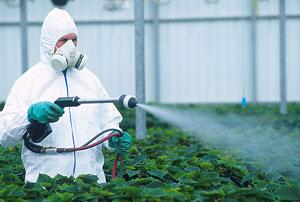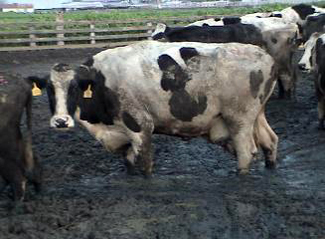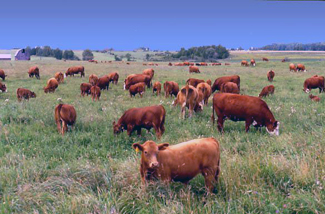It’s easy to get sidetracked with our own sustainability projects – especially this time of the year as the weather finally starts to break and working outdoors is a more pleasant experience in most areas of the country.
Getting sidetracked with sustainability at home isn’t a bad thing, but sometimes I worry that we are missing out on the bigger picture.
I have been toying with the idea of writing an article examining whether or not sustainability has made it into “mainstream acceptance.” My plan was to evaluate current trends in manufacturing, agriculture, water conservation and alternative energy and see how close (or far away) society actually is from achieving new levels of sustainability that equate to measurable differences in the health of the planet.
Before I could really flesh out the ideas I wanted to convey, I came across a disturbing article published earlier this year in the Wall Street Journal that needs to be addressed.
The title of the article is “Organic Farming is Not Sustainable – More labor with lower yields is a luxury only rich populations can afford.”
What a bold (and highly inaccurate) statement!
Let’s take a look at some of the arguments used by author Dr. Henry Miller and why (I think) they are dead wrong.
Inaccuracy #1: Natural Fertilizer is Bad for Groundwater Supplies
According to the article, a study conducted in Israel last year states that the use of solid organic matter such as composted manure as a natural fertilizer contributes to “significant down-leaching of nitrates into groundwater.”
So you mean to tell me that the slew of pesticides, herbicides and chemical fertilizers used in conventional agricultural operations are good for the groundwater?
Organic fertilizer is nature’s way of feeding plants. It has done so for millions of years – well before Miracle Gro and other NPK fertilizers came to market. Chemical fertilizers are often petroleum-based and may contain harmful substances including cadmium, zinc and arsenic as a byproduct of the manufacturing process.

Does this seem safe to you? I don’t remember having to don a respirator the last time I worked in the garden…
Inaccuracy #2: Compost Contributes to Greenhouse Gases & Food Poisoning
The article also states that large-scale composting operations create greenhouse gases like methane and nitrous oxide. This according to an agricultural scientist named Steve Savage.
Steve – I’m not sure where you learned to compost, but proper composting relies on aerobic decomposition. Methane and other potentially dangerous gases are only produced when decomposition is dominated by anaerobic bacteria. In other words, the compost pile isn’t being turned properly and may contain inappropriate materials such as meat or fish.
When composting is done correctly, there is absolutely no danger to the environment regardless of the size of the composting operation.
Here’s an even better myth perpetrated by this author. He says that the use of compost can spread pathogenic bacteria that lead to increased cases of food poisoning in the United States.
What!?
Last time I checked, most food poisoning outbreaks in this country are a direct result of poor manufacturing conditions in processing plants where profit comes before consumer safety. A properly composted pile of organic matter produces enough heat to kill all traces of bacteria. If it’s hot enough to heat our water, it’s hot enough to sterilize itself naturally.
Again, this means turning the pile to aerate soil and encourage the growth of aerobic bacteria. Whether you can turn your pile with a shovel or need a bulldozer to do it, aerating compost is the same. There shouldn’t be any noxious fumes and the heat produced during decomposition sterilizes any potentially harmful bacteria.
Inaccuracy #3: Organic Farming Produces Lower Yields
Next, the article discusses how the lower yields of organic farms (20% – 50% lower according the author) means that organic farming imposes “various stresses on farmland and especially on water consumption.”
Really? How?
About the only thing I can agree with in this regard is that organic farms typically produce less per hectare than conventional farms. This difference has more to do with organic farmers trying to follow the monoculture philosophy of conventional farms.
A truly sustainable organic farm understands and implements the principles of permaculture and companion planting to mimic the natural ecosystem. Conventional farms would rather just pump chemicals into the soil.
In the same paragraph, the author also cites a study published in the Journal of Environmental Management stating that “land use, eutrophication and acidification potential per product unit” are higher in organic farming systems.
Properly matured compost is one of the best ways to maintain a proper soil pH level and an organic farming operation doesn’t use any more land than a conventional one.
Unless, of course, you are referring to grass-fed beef versus beef pumped full of growth hormone and antibiotics while living in a pen full of manure until slaughter time.

This…

or this?
I’d rather let the cattle graze across a multi-acre ranch than be stuffed into a manure-filled pen – wouldn’t you?
Inaccuracy #4: Organic Farming Contributes to Soil Erosion
The article also claims that soil erosion is more prevalent in organic farming operations. The author cites tilling as one of the leading causes of soil mismanagement and somehow he concludes that conventional farms are not guilty of destroying soil through tilling and other destructive methods.
We have always recommend following a permaculture-oriented organic gardening approach which includes no-till gardening and planting cover crops in the off-season to promote long-term soil health.
We have highlighted countless farms around the country as perfect examples of sustainable agriculture. Most recently, we highlighted Salamander Springs Farm in last month’s Resilient Strategies. That farm is completely sustainable and does not till land or present any threats to existing natural resources at all for that matter.
It makes me wonder what “organic” farms these researchers have been studying…
Inaccuracy #5: GMOs are Good
I realize the verdict is still out on the long-term benefits and/or drawbacks of genetically modified foods, but this author goes so far as to say that the “most illogical and least sustainable aspect of organic farming is the exclusion of genetically modified organisms.”
Not too long ago I wrote a piece about how much less nutritious our food has become. As popular crops like corn and soybeans have been modified for drought and insect resistance, they have also become less nutritious – sometimes offering only half the nutritional value of the same crops from 50 years ago.
To say that GMOs are the only way to be sustainable makes me think this guy is in bed with Monsanto or some other Big Agriculture powerhouse. How else could a seemingly educated person come up with such a wild claim?
Finally, the author ends by calling people who demand better quality, organic quality foods “social elites” and attributes all the “success” of modern agriculture to science-based research and agribusiness companies.
Is that what we are? “Social elites” incapable of understanding what sustainability is.
Hardly.
If you can’t tell already, this article really struck a nerve with me. A respected news outlet is publishing content that is outright false and flies directly in the face of everything we try to promote at Resilient Communities.
And for what…corporate greed?
By the way, if you want to read this idiotic article for yourself, check it out here.
While sustainable farming practices have come a long way in recent years, it is the ignorant opinions of others that are keeping sustainability from becoming as important as it should be.
No thanks to the Wall Street Journal and “Dr.” Henry Miller.


